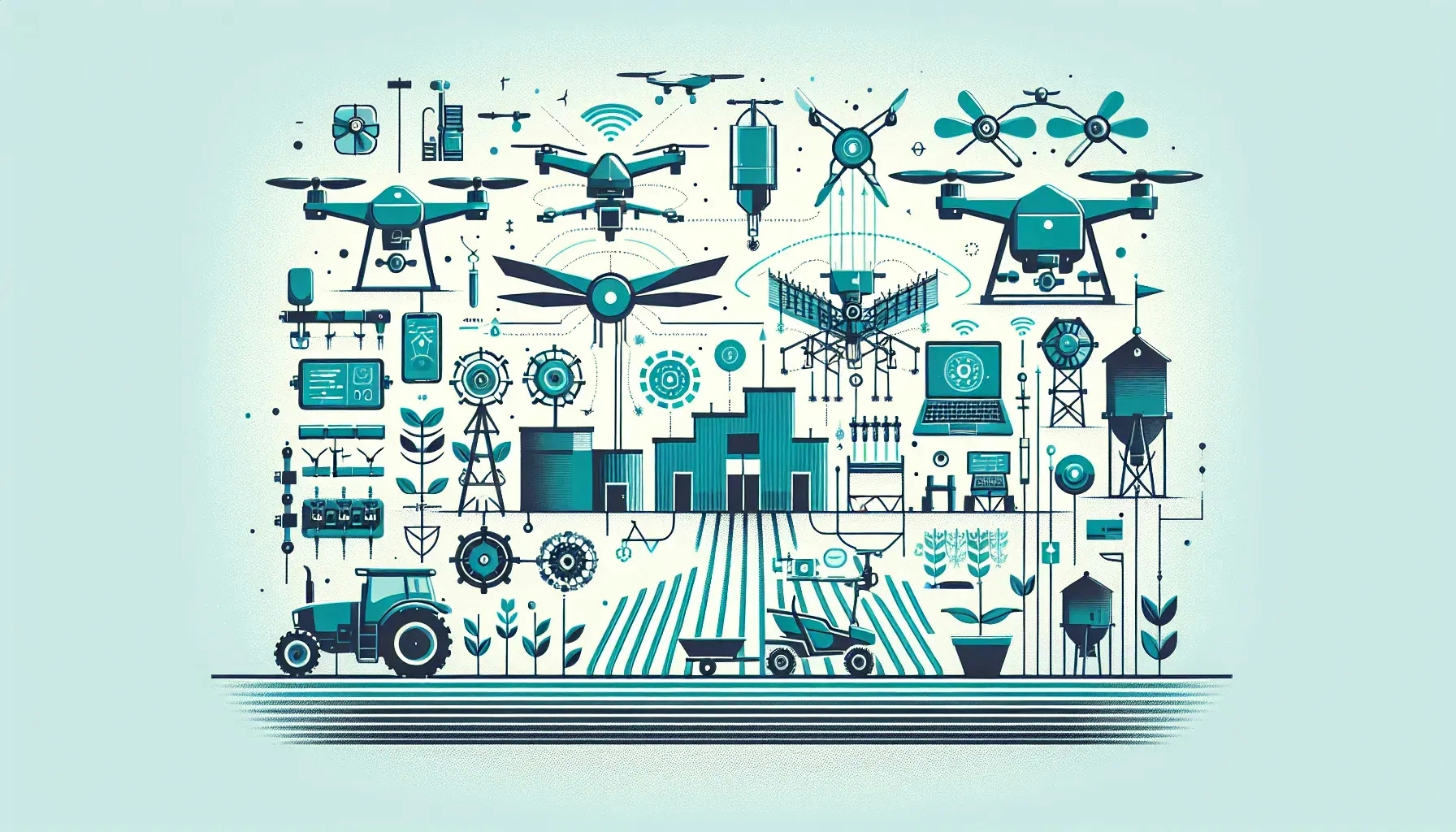Innovations in Agronomic Technology and Tools
Agronomy Magazine

Welcome to the dawn of a new era in agronomy, where technology and innovation are reshaping the landscape. This blog post will take you on a journey through the latest advancements in agronomic tools and technology, highlighting how they are revolutionizing the field. From precision farming to AI-driven decision making, we will delve into the heart of these innovations and explore their implications for the future of agriculture.
Precision Agriculture: The Future is Now
Precision agriculture stands at the forefront of agronomic innovation. This approach harnesses technology to enhance crop management and improve yields. It involves the use of GPS, remote sensing, and other tech tools to monitor field conditions and make data-driven decisions.
Farmers are now able to apply resources such as water, fertilizer, and pesticides with pinpoint accuracy. This not only optimizes crop health and yield but also minimizes waste and environmental impact.
Moreover, precision agriculture is paving the way for automation in farming. Autonomous tractors and drones are becoming increasingly common, guided by GPS and equipped with sensors to perform tasks with minimal human intervention.
The Rise of AI and Machine Learning in Agronomy
Artificial Intelligence (AI) and Machine Learning (ML) are revolutionizing agronomy. These technologies are capable of analyzing vast amounts of data to predict outcomes and make recommendations.
For instance, AI can analyze soil data, weather patterns, and crop health to predict yield and suggest optimal planting and harvesting times. Similarly, ML algorithms can learn from past data to predict pest outbreaks and recommend appropriate preventative measures.
These technologies are also transforming the way farmers interact with their fields. AI-powered chatbots and virtual assistants can provide real-time advice and alerts, making it easier for farmers to manage their crops effectively.
The Impact of IoT in Agriculture
The Internet of Things (IoT) is another key player in agronomic innovation. IoT devices, such as sensors and smart machinery, are providing farmers with real-time data about their fields.
These devices can monitor soil moisture, nutrient levels, weather conditions, and crop health, among other things. This data can then be analyzed to make informed decisions about irrigation, fertilization, and pest control.
Moreover, IoT devices can be interconnected to create smart farms. These farms can automate various processes, from irrigation to harvesting, making farming more efficient and sustainable.
The Role of Big Data in Agronomy
Big data is playing a crucial role in the evolution of agronomy. The ability to collect and analyze vast amounts of data is enabling farmers to make more informed decisions and improve their productivity.
For instance, farmers can use big data to analyze trends in weather patterns, crop yields, and market prices. This can help them plan their planting and harvesting schedules, choose the most profitable crops, and optimize their marketing strategies.
Moreover, big data is facilitating the development of predictive models. These models can forecast crop yields, pest outbreaks, and other key factors, helping farmers to anticipate challenges and take proactive measures.
The Emergence of Vertical and Urban Farming
Vertical and urban farming are emerging as innovative solutions to the challenges of urbanization and population growth. These methods involve growing crops in vertical layers or in urban environments, using controlled environments and hydroponic systems.
Vertical farming allows for year-round crop production, regardless of weather conditions. It also uses less water and land than traditional farming, making it a sustainable option for urban areas.
On the other hand, urban farming is transforming unused urban spaces into productive gardens. This not only provides fresh produce for urban dwellers but also helps to reduce the environmental impact of food transportation.
The Promise of Genomic Technologies in Agriculture
Genomic technologies are opening up new possibilities in agriculture. By sequencing and analyzing the genomes of crops, scientists can develop new varieties with improved traits.
For instance, genomic technologies can help to create crops that are more resistant to pests, diseases, and harsh environmental conditions. They can also enhance nutritional content, flavor, and other desirable traits.
Moreover, genomic technologies are facilitating the development of precision breeding techniques. These techniques can accelerate the breeding process and allow for the creation of customized crop varieties.
The Future of Agriculture: A Technological Revolution
The future of agriculture lies in the hands of technology and innovation. From precision farming to AI, IoT, big data, vertical farming, and genomics, the field of agronomy is undergoing a radical transformation. These innovations are not only improving productivity and sustainability but also reshaping our relationship with the land. As we move forward, it is clear that technology will continue to play a pivotal role in the evolution of agriculture.